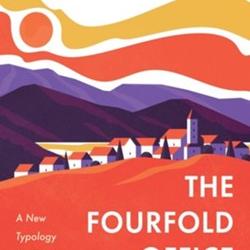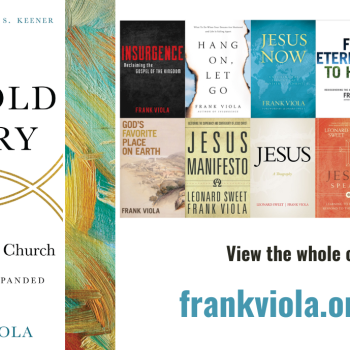For many years I’ve argued that the body of Christ has emphasized the New Testament, the Psalms, the Torah, and the Prophets. However, the wisdom literature — which includes Proverbs, Ecclesiastes, Song of Solomon, etc. — is often skipped over.
Tim Chaddick’s new book Better: How Jesus Satisfies the Search for Meaning is a modern-day discussion and application of the book of Ecclesiastes.
The book reads like a series of sermons and I suspect that’s where the material came from (though I can’t be sure). The co-author perhaps compiled the sermon material.
Ecclesiastes is a book about how the world works. Even though it was written thousands of years ago, it’s principles still apply because (1) human nature doesn’t change and (2) the world system doesn’t change at its root (though on the surface it often changes).
Chaddick tries to weave the story of Ecclesiastes in with the search for human meaning found in Jesus.
Jesus, of course, is the new Solomon, just as He’s the new Moses, the new David, the new Adam, the new Isaac, the new Israel, etc.
“A greater than Solomon is here . . .”
Indeed.
I Chaddick’s book is great for Christians who have never taken the time to read Ecclesiastes. It will give them a summary of the main points of the book along with life applications.
In the Old Testament …
The Torah shows us the principles and moral laws of God.
The Prophets show us the mind and purposes of God.
The wisdom literature gives us insight into how to apply God’s truth in our lives.
While evangelical Christians are strong on doctrine and “doing,” they often fall short on wisdom.
That’s where the wisdom literature comes in.
Tim’s new book brings up a great question. What is wisdom, exactly?
Some of the best answers I’ve given to the question:
Wisdom is the application of knowledge and truth.
Wisdom is insight born from experience.
Wisdom is the ability to see future outcomes based on experience.
Wisdom is Jesus Christ – 1 Corinthians 1:30.
Proverbs and Ecclesiastes both contain unsurpassing wisdom and insight.
The body of Christ should learn to read these books to see Jesus in them.
Everywhere you see wisdom in the Old Testament, replace it with Christ.
That will bring you closer to the reality of what true wisdom is.
All told, Better is a book that brings you into a summarized understanding of the practical insights that are found in Ecclesiastes. Chaddick seeks to highlight the attractiveness of Jesus in comparison to those pursuits that leave us empty and unfulfilled. Jesus is in fact the answer to our search for meaning.
Today’s question is: What is your definition of wisdom? If this post gets over 100 Facebook likes, I will give away one free copy of BETTER to one person who comments on my most recent post – http://frankviola.com – comments are closed on this post.
Since we’re on the subject, I’ll close this review with some thoughts on the wisdom literature that I’ve written elsewhere.
—
There’s a very obscure passage in the Old Testament that sheds light on how God communicates His will to His people. It’s found in Jeremiah 18:18:
Surely THE TORAH is not going to be lost to THE PRIEST, nor WISDOM to the SAGE, nor THE PROPHETIC WORD to the PROPHET.
The ancient Hebrews divided the Old Testament up into three sections. The first section is called the Torah. It includes the first five books of the Bible. The steward of the Torah is the priest.
The second section of the Old Testament is the Prophets. It includes the major and minor Prophets and the historical books. The steward of the Prophets is, of course, the prophet.
The third division of the Old Testament is called the Wisdom literature or “the Writings.” It includes the Psalms, Ecclesiastes, Proverbs, Job, and the Song of Solomon. The steward of the Wisdom literature is the sage (or wise man).
These three sections of the Old Testament represent the three major ways in which God communicates His will to His people.
The Torah contains the foundations by which the community of God’s people is built. The Torah contains God’s enduring moral principles—the standards that spring from His very nature. These standards do not change nor can they be compromised. In the Old Testament economy, the priest was the person who taught the Torah.
The prophet challenges the people’s response to Torah, which is often a legalistic or libertine response.
Because of his long experience, a wise person can detect patterns. He is able to foresee outcomes (see Luke 11:49; Prov. 22:3).
A wise person may make a statement like this: “What you just said sounds really good, but it’s not going to work, and here’s why . . .”
The priest is authorized by the authority of the Torah which contains what God has previously spoken. The prophet is authorized by the present burdenof the Lord that is upon him. The sage is authorized by his experience and the fruit of his wisdom, which can be evaluated by thefuture outcome of his counsel (Luke 7:35).
Put another way, the Torah looks to the past and asks, “Is this Scriptural? Is this right?”
The prophet looks to the present and asks, “What is God saying to us right now? What is His present leading?”
The sage looks to the future and asks, “How will our present actions affect the future? Is this decision wise or foolish?”
To put it in the language of the Bible: The priest asks: “What do these stones mean?” (Josh. 4:6). The prophet asks: “Is there any word from the Lord?” (Jer. 37:17). And the sage asks: “Where shall wisdom be found?” (Job 28:12).
Looking at God’s will through only one or even two of these lenses, and not all three, brings a lopsided view:
If a church is only conditioned to recognize the Lord’s will through the form of Torah, it will become ritualistic at best or judgmental, self-righteous, and legalistic at worst. It will need the prophetic word and the word of wisdom to balance it.
A church that only recognizes the Lord’s will through the lens of the prophet will be unstable and erratic at best. At worst, it will be deceived because the prophet’s revelation can be bogus. Thus a prophetic word should be tested by its faithfulness to what God has already said (i.e., Torah) and by its future outcome (i.e., wisdom).
If a church only recognizes the Lord’s will through the lens of wisdom, it will be given over to human reasoning and empty philosophy. True wisdom will always be faithful to what God has already said (i.e., Torah), and it will be responsive to the in-breaking of an authentic prophetic word.
All three ways of God’s speaking should be held in tension. The reason? Jesus Christ incarnates all three modes.
Jesus Christ is the real Priest as well as the Torah itself.
Jesus Christ is the real Prophet as well as the prophetic word or Logos.
Jesus Christ is the real Sage as well as Wisdom itself.…..
The speaking may sound different, but it’s the same Christ working through each one.













